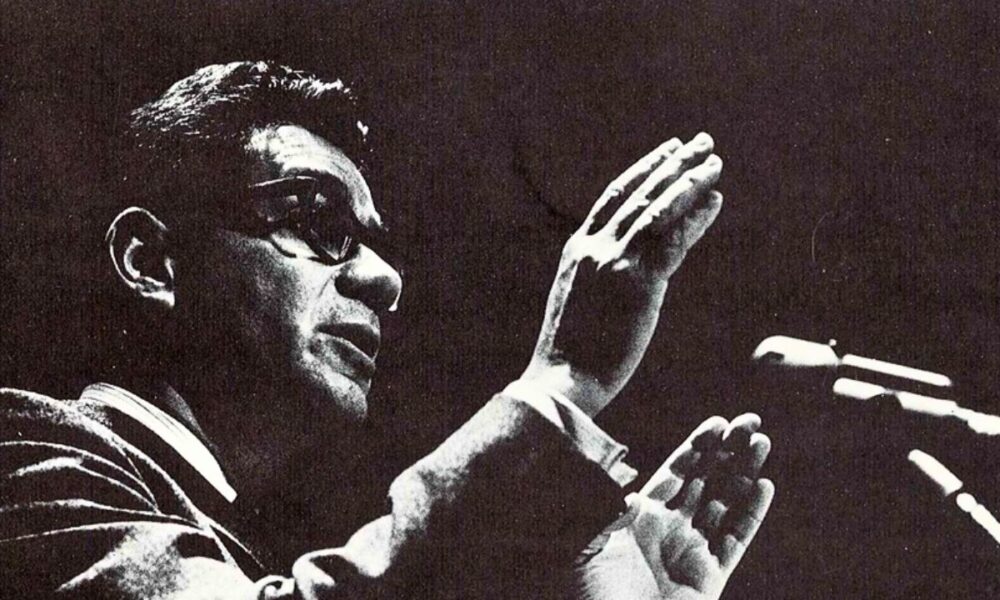A newly declassified 1968 memo reveals the CIA once contemplated the extraordinary move of suing a prominent author who accused the agency of playing a role in the assassinations of President John F. Kennedy and Dr. Martin Luther King Jr.
The memo, written in October 1968 by CIA Assistant General Counsel John K. Greaney and addressed to senior agency attorney John Warner, was among more than 230,000 pages of intelligence documents released online July 21.
The release, related to the 1968 assassination of Dr. King, was nearly three times larger than this year’s JFK document release — part of a Trump-era initiative to declassify Cold War records.
The memo reflects a moment in October 1968 when agency staff explored, and ultimately rejected, the extraordinary idea of filing a libel suit against attorney and author Mark Lane.
Lane, a Vietnam War critic and early skeptic of the official narrative around the JFK assassination, became a household name after publishing Rush to Judgment, which challenged the Warren Commission’s findings and implied the CIA or some of its members had been involved in the President’s murder.
“This is in answer to your question of whether or not the Director of Central Intelligence could institute a libel suit against Mark Lane or other authors of slanderous articles attributing responsibility to CIA for the assassination of President John F. Kennedy, Dr. Martin Luther King, Jr., and Senator Robert F. Kennedy,” Greaney begins in the memo. It is accompanied by a transmittal slip from Joseph Goodwin, assistant to the Director.
While the memo acknowledged that Lane’s writings were “malicious” and possibly met the legal standard of “actual malice” — as required by the landmark Supreme Court case New York Times Co. v. Sullivan — it concluded that a libel suit would be unwise.
The reason? A trial could expose sensitive CIA “sources and methods,” the memo warned, and would likely give “additional publicity unworthy of their ilk” to Lane and other critics.
Legal precedent also weighed heavily in the decision. The memo cites the 1964 Sullivan ruling, which established a high standard for public officials to prevail in defamation suits, requiring proof that a statement was made knowingly false or published with reckless disregard for the truth. It further notes the political history of speech protections, referencing James Madison and the Virginia Resolutions of 1798, which condemned the Alien and Sedition Acts.
The agency’s deliberations appear to have taken place during a period of growing public mistrust, when revelations about CIA activities from Cold War assassination plots to domestic surveillance were beginning to surface through journalism and congressional probes.
The idea of the CIA director suing an author would have been almost unprecedented. Government officials, especially those in intelligence, rarely take legal action against journalists or writers. One of the few high-profile cases in recent memory was then-former President Donald Trump’s defamation suit against ABC News and George Stephanopoulos, which resulted in a settlement earlier this year after the network aired allegedly false claims during the 2024 presidential campaign.
While the CIA has consistently denied involvement in the assassinations of Kennedy, King, or Robert F. Kennedy, public skepticism has lingered. A former intelligence officer, Gary Underhill, allegedly told acquaintances he believed the CIA was responsible for JFK’s death, a file declassified earlier this year indicated. Underhill died by apparent suicide shortly after the assassination.
Mark Lane, for his part, remained a polarizing figure until he died in 2016. He was among the earliest and most prominent critics of the Warren Commission and continued to publish critical books and give speeches well into his eighties, per The Washington Post.
As for John Warner — not to be confused with the later U.S. senator and husband of Elizabeth Taylor of the same name — he served as the CIA’s general counsel from 1973 to 1976 and played a key role in crafting the agency’s legal defenses during the tumultuous post-Watergate years. An official CIA oral history describes Warner as a foundational figure who was present “at the creation” of the agency and helped guide it through “damaging revelations of the 1970s.”


